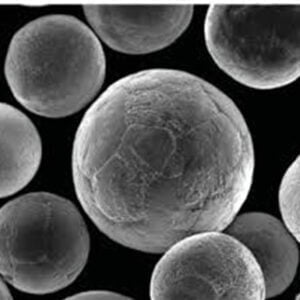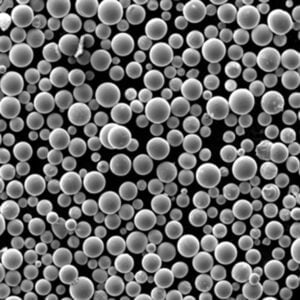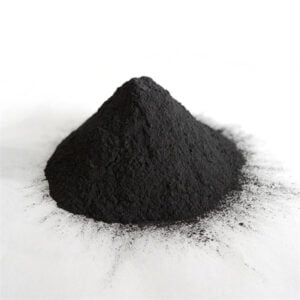Atomiseringsanläggning
Innehållsförteckning
Översikt över Atomiseringsanläggningar
Atomiseringsanläggningar spelar en central roll i produktionen av metallpulver, som är viktiga komponenter i olika branscher som flyg- och rymdindustrin, bilindustrin och elektronikindustrin. Dessa anläggningar använder en sofistikerad process för att omvandla smält metall till fina pulverpartiklar, var och en med specifika egenskaper som är skräddarsydda för olika applikationer.
Atomisering innebär att smält metall sprutas genom en gas- eller vätskeström under högt tryck, vilket gör att metallen bryts ned i små droppar som stelnar till pulver. Metoden ger hög renhet, jämn partikelstorleksfördelning och överlägsna materialegenskaper, vilket gör den oumbärlig för tillverkning av avancerade material.
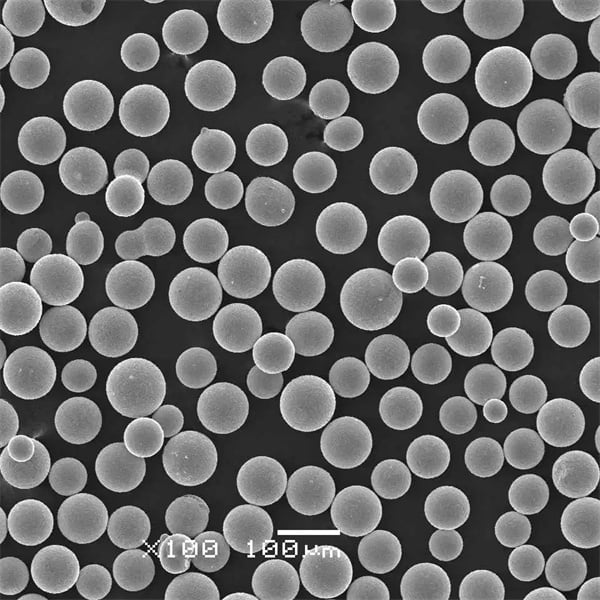
Viktiga detaljer för Atomiseringsanläggningar
| Aspekt | Beskrivning |
|---|---|
| Process | Atomisering av smält metall med högtrycksgas eller -vätska |
| Bearbetade material | Metaller som stål, aluminium, koppar, titan och deras legeringar |
| Tillämpningar | Flyg- och rymdkomponenter, bildelar, elektronik, additiv tillverkning, ytbeläggningar m.m. |
| Fördelar | Hög renhet, enhetlig partikelstorlek, mångsidighet i pulveregenskaper, skalbarhet |
| Utmaningar | Hög energiförbrukning, komplex utrustning, behov av exakt kontroll över processparametrarna |
Olika typer av metallpulver och deras egenskaper
1. Pulver av rostfritt stål
Pulver av rostfritt stål används ofta i applikationer som kräver hög hållfasthet och korrosionsbeständighet. Dessa pulver är viktiga för att producera hållbara och tillförlitliga komponenter i olika branscher.
| Modell | Sammansättning | Fastigheter | Tillämpningar |
|---|---|---|---|
| SS304 | 18% krom, 8% nickel | Korrosionsbeständighet, god svetsbarhet | Köksutrustning, medicintekniska produkter |
| SS316 | 16% Krom, 10% Nickel, 2% Molybden | Överlägsen korrosionsbeständighet, särskilt i kloridmiljöer | Marin utrustning, kemisk bearbetning |
2. Aluminiumpulver
Aluminiumpulver är lätta och har utmärkt ledningsförmåga och korrosionsbeständighet. De används ofta i lättviktsstrukturer och elektroniska applikationer.
| Modell | Sammansättning | Fastigheter | Tillämpningar |
|---|---|---|---|
| Al6061 | 98% Aluminium, 1% Magnesium, 0,5% Kisel | Högt hållfasthet/vikt-förhållande, god bearbetbarhet | Komponenter för flyg- och rymdindustrin, bildelar |
| Al7075 | 90% Aluminium, 5,6% Zink, 2,5% Magnesium | Mycket hög hållfasthet, god utmattningshållfasthet | Flygplansstrukturer, delar med hög belastning |
3. Kopparpulver
Kopparpulver är kända för sin utmärkta elektriska och termiska ledningsförmåga. De är viktiga för elektriska komponenter och applikationer för termisk hantering.
| Modell | Sammansättning | Fastigheter | Tillämpningar |
|---|---|---|---|
| Cu-ETP | 99,9% Koppar | Hög elektrisk ledningsförmåga, god lödbarhet | Elektriska kontakter, kylflänsar |
| Cu-DHP | 99,9% Koppar, 0,04% Fosfor | God värmeledningsförmåga, hög duktilitet | VVS-komponenter, värmeväxlare |
4. Titanpulver
Titanpulver är lätta och har hög hållfasthet och utmärkt korrosionsbeständighet, vilket gör dem idealiska för flyg- och rymdindustrin samt för medicinska tillämpningar.
| Modell | Sammansättning | Fastigheter | Tillämpningar |
|---|---|---|---|
| Ti-6Al-4V | 90% titan, 6% aluminium, 4% vanadin | Hög hållfasthet, utmärkt biokompatibilitet | Fästelement för flyg- och rymdindustrin, medicinska implantat |
5. Nickelbaserade pulver
Nickelbaserade pulver ger hög temperatur- och korrosionsbeständighet, vilket är avgörande för högpresterande applikationer i extrema miljöer.
| Modell | Sammansättning | Fastigheter | Tillämpningar |
|---|---|---|---|
| Inconel 625 | 58% nickel, 20% krom, 8% molybden | Utmärkt hållfasthet vid höga temperaturer och korrosionsbeständighet | Gasturbiner, kemisk bearbetning |
| Hastelloy C276 | 57% Nickel, 16% Molybden, 15% Krom | Enastående korrosionsbeständighet i tuffa miljöer | Kemisk bearbetning, avfallshantering |
6. Järnbaserade pulver
Järnbaserade pulver används ofta i olika branscher på grund av sin mångsidighet och kostnadseffektivitet.
| Modell | Sammansättning | Fastigheter | Tillämpningar |
|---|---|---|---|
| Fe-C | 99% järn, 1% kol | God hållfasthet och hårdhet | Fordonskomponenter, strukturella delar |
| Fe-Ni | 90% Järn, 10% Nickel | Förbättrad seghet och slitstyrka | Verktyg, delar till tunga maskiner |
7. Koboltbaserade pulver
Koboltbaserade pulver är avgörande för applikationer med hög slitstyrka och höga temperaturer, särskilt inom skärverktyg och flygindustrin.
| Modell | Sammansättning | Fastigheter | Tillämpningar |
|---|---|---|---|
| Stellite 6 | 60% kobolt, 28% krom, 4% volfram | Hög slitstyrka, god korrosionsbeständighet | Skärande verktyg, turbinblad |
| Stellit 21 | 60% Kobolt, 27% Krom, 5% Molybden | Utmärkt slitstyrka vid höga temperaturer | Ventilsäten, lagerytor |
8. Pulver av volframkarbid
Volframkarbidpulver är kända för sin hårdhet och slitstyrka, vilket gör dem oumbärliga i skärande och slitstarka applikationer.
| Modell | Sammansättning | Fastigheter | Tillämpningar |
|---|---|---|---|
| WC-Co | 90% volframkarbid, 10% kobolt | Extremt hård, hög slitstyrka | Skärande verktyg, gruvutrustning |
| WC-Ni | 90% volframkarbid, 10% nickel | Hög hårdhet, förbättrad seghet | Slitstarka delar, verktygsbitar |
9. Magnesiumpulver
Magnesiumpulver uppskattas för sin lätta vikt och höga hållfasthet, särskilt inom fordons- och flygindustrin.
| Modell | Sammansättning | Fastigheter | Tillämpningar |
|---|---|---|---|
| Mg-Al-Zn | 90% Magnesium, 9% Aluminium, 1% Zink | Lättvikt, bra förhållande mellan styrka och vikt | Fordonskomponenter, flygplansdelar |
| Mg-Zr | 99% Magnesium, 1% Zirkonium | Utmärkt korrosionsbeständighet, hög hållfasthet | Strukturer för flyg- och rymdindustrin, elektronik |
10. Silverpulver
Silverpulver är kända för sin överlägsna elektriska ledningsförmåga och sina antimikrobiella egenskaper och används ofta inom elektronik och medicinska tillämpningar.
| Modell | Sammansättning | Fastigheter | Tillämpningar |
|---|---|---|---|
| Ag-Pure | 99,9% Silver | Högsta elektriska ledningsförmåga, antimikrobiell | Elektriska kontakter, medicintekniska produkter |
| Ag-Cu | 92% Silver, 8% Koppar | God ledningsförmåga, förbättrad hårdhet | Elektriska kontaktdon, lödlegeringar |
Tillämpningar av Atomiseringsanläggningar
Atomiseringsanläggningar används inom en rad olika branscher tack vare mångsidigheten och den höga kvaliteten på de metallpulver de producerar.
| Industri | Tillämpningar |
|---|---|
| Flyg- och rymdindustrin | Höghållfasta lättviktskomponenter, turbinblad, strukturella delar |
| Fordon | Motorkomponenter, lättviktskonstruktioner, bromsbelägg |
| Elektronik | Ledande pasta, elektroniska kontaktdon, kylflänsar |
| Additiv tillverkning | 3D-utskrift av komplexa delar, snabb prototyptillverkning |
| Medicinsk | Biokompatibla implantat, kirurgiska instrument |
| Ytbeläggningar | Beläggningar för termisk sprutning, korrosionsskyddande beläggningar |
| Verktyg | Skärverktyg, slitstarka delar |
| Kemisk bearbetning | Korrosionsbeständig utrustning, katalysatorer |
Fördelar med atomiseringsanläggningar
Atomiseringsanläggningar har många fördelar som gör dem till ett förstahandsval för produktion av metallpulver.
- Hög renhet: Atomisering producerar pulver med minimal kontaminering, vilket garanterar hög renhet och överlägsna materialegenskaper.
- Enhetlig partikelstorlek: Processen möjliggör exakt kontroll över partikelstorleksfördelningen, vilket leder till ett konsekvent och förutsägbart beteende i applikationer.
- Mångsidighet: Atomisering kan tillämpas på ett brett spektrum av metaller och legeringar, vilket ger flexibilitet i materialvalet.
- Skalbarhet: Atomiseringsanläggningar kan skalas för att möta varierande produktionskrav, från småskalig forskning till storskalig tillverkning.
- Anpassning: Pulver kan skräddarsys efter specifika krav, inklusive partikelform, storlek och sammansättning, för att möta olika applikationsbehov.
Nackdelar med Atomiseringsanläggningar
Trots sina många fördelar har finfördelningsanläggningar också vissa nackdelar som måste beaktas.
- Hög energiförbrukning: Processen kräver betydande energitillförsel, vilket gör den mindre effektiv jämfört med vissa andra pulverproduktionsmetoder.
- Komplex utrustning: Atomiseringsanläggningar kräver sofistikerade maskiner och kontroller, vilket leder till högre initiala investerings- och underhållskostnader.
- Processtyrning: Exakt kontroll över processparametrarna är avgörande för att uppnå önskade pulveregenskaper, som kan vara svåra att upprätthålla konsekvent.
- Begränsade material: Vissa metaller och legeringar kan vara svåra eller oekonomiska att bearbeta med hjälp av atomisering, vilket begränsar dess tillämplighet.
Specifikationer, storlekar och standarder
När man väljer metallpulver för specifika applikationer är det viktigt att ta hänsyn till de specifikationer, storlekar och standarder som definierar deras kvalitet och lämplighet.
| Parameter | Beskrivning |
|---|---|
| Partikelstorlek | Typiskt intervall från 1 till 150 mikron, beroende på applikation |
| Renhet | Generellt över 99%, med specifika föroreningar som kontrolleras baserat på applikationsbehov |
| Morfologi | Sfäriska, oregelbundna eller dendritiska former, vilket påverkar flytbarhet och packningstäthet |
| Standarder | ISO-, ASTM- och andra branschspecifika standarder säkerställer konsekvent kvalitet |
| Förpackning | Finns i olika storlekar, från små laboratoriekvantiteter till stora industriella volymer |
Leverantörer och prisuppgifter
Att välja rätt leverantör är avgörande för att få högkvalitativa metallpulver till konkurrenskraftiga priser.
| Leverantör | Erbjudna material | Prissättning (per kg) | Ytterligare tjänster |
|---|---|---|---|
| ABC Metals | Rostfritt stål, aluminium, koppar | $50 – $200 | Utveckling av kundanpassade legeringar, teknisk support |
| Pulverteknik | Titan-, nickel- och koboltbaserade pulver | $100 – $500 | Snabb prototyptillverkning, mängdrabatter |
| Metal Powders Inc. | Järnbaserade, volframkarbid, silver | $20 – $300 | Kvalitetssäkring, skräddarsydd förpackning |
| Globala pulver | Brett utbud av metallpulver | $30 – $400 | Internationell frakt, konsultation på plats |
Jämförelse av metallpulver
När man väljer metallpulver för specifika applikationer är det viktigt att jämföra deras egenskaper, fördelar och begränsningar.
| Metallpulver | Fördelar | Nackdelar |
|---|---|---|
| Rostfritt stål | Korrosionsbeständighet, god hållfasthet | Högre kostnad jämfört med vanligt stål |
| Aluminium | Låg vikt, god ledningsförmåga | Lägre hållfasthet jämfört med vissa andra metaller |
| Koppar | Utmärkt elektrisk och termisk ledningsförmåga | Känslig för oxidation |
| Titan | Hög hållfasthet, biokompatibilitet | Dyrt, utmanande att bearbeta |
| Nickel-baserad | Hög temperatur- och korrosionsbeständighet | Högre kostnad, komplex bearbetning |
| Järnbaserad | Kostnadseffektiv, mångsidig | Lägre korrosionsbeständighet |
| Kobolt-baserad | Hög slitstyrka, temperaturstabilitet | Dyrt, begränsad tillgänglighet |
| Volframkarbid | Extremt hård, hög slitstyrka | Skörhet, hög kostnad |
| Magnesium | Lättvikt, bra förhållande mellan styrka och vikt | Brandfarlighet, korrosionsproblem |
| Silver | Överlägsen ledningsförmåga, antimikrobiella egenskaper | Hög kostnad, missfärgas lätt |
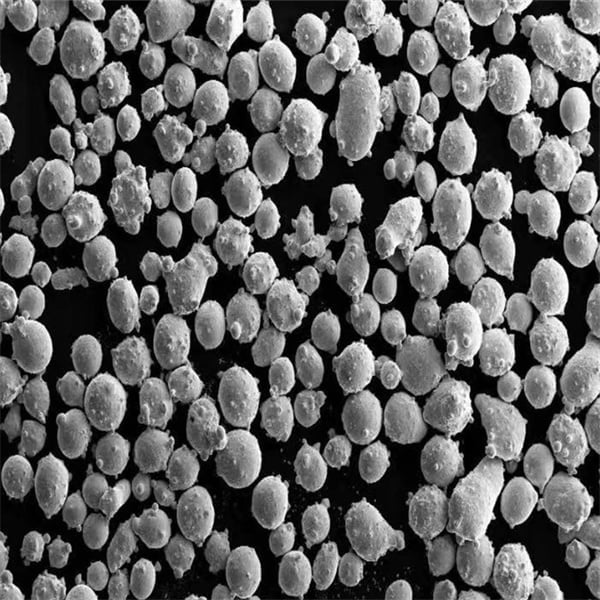
VANLIGA FRÅGOR
Vad är en atomiseringsanläggning?
En atomiseringsanläggning är en anläggning som omvandlar smält metall till fint pulver med hjälp av gas- eller vätskeströmmar under högt tryck. Denna process säkerställer hög renhet och enhetlig partikelstorlek, vilket gör pulvren lämpliga för olika industriella tillämpningar.
Vilka metaller kan bearbetas i en atomiseringsanläggning?
Atomiseringsanläggningar kan bearbeta ett brett spektrum av metaller, inklusive rostfritt stål, aluminium, koppar, titan, nickelbaserade legeringar, järn, kobolt, volframkarbid, magnesium och silver.
Varför är partikelstorleken viktig i metallpulver?
Partikelstorleken påverkar metallpulvrets flytbarhet, packningstäthet och övergripande prestanda i applikationer som additiv tillverkning, beläggningar och sintringsprocesser. Enhetlig partikelstorleksfördelning säkerställer ett konsekvent och förutsägbart beteende.
Vilka är de viktigaste användningsområdena för metallpulver som produceras i finfördelningsanläggningar?
Metallpulver används inom flyg- och rymdindustrin, fordonsindustrin, elektronikindustrin, additiv tillverkning, medicintekniska produkter, ytbeläggningar, verktyg och kemisk processindustri tack vare sina skräddarsydda egenskaper och höga prestanda.
Vilka är fördelarna med att använda finfördelade metallpulver?
Atomiserade metallpulver erbjuder hög renhet, enhetlig partikelstorlek, mångsidighet i materialval, skalbarhet för olika produktionsvolymer och anpassning för att uppfylla specifika applikationsbehov.
Vilka utmaningar är förknippade med finfördelningsanläggningar?
Utmaningarna omfattar hög energiförbrukning, komplex utrustning och styrning, exakt underhåll av processparametrar och begränsad tillämpbarhet för vissa metaller och legeringar.
Hur prissätts metallpulver?
Priset på metallpulver beror på materialtyp, renhet, partikelstorlek och leverantör. Priserna kan variera från $20 till $500 per kilogram, där tilläggstjänster som utveckling av anpassade legeringar och teknisk support påverkar kostnaden.
Kan atomiseringsanläggningar producera pulver av speciallegeringar?
Ja, många leverantörer erbjuder anpassad legeringsutveckling för att uppfylla specifika applikationskrav, vilket säkerställer att metallpulvret har de önskade egenskaperna för optimal prestanda.
Slutsats
Atomiseringsanläggningar ligger i framkant när det gäller produktion av metallpulver och gör det möjligt att skapa högkvalitativa pulver som är viktiga för modern tillverkning. Genom att förstå de olika typerna av metallpulver, deras användningsområden samt atomiseringens fördelar och begränsningar kan industrin fatta välgrundade beslut för att utnyttja den fulla potentialen hos dessa avancerade material. Oavsett om det gäller flyg-, fordons-, elektronik- eller medicinindustrin fortsätter mångsidigheten och prestandan hos finfördelade metallpulver att driva innovation och spetskompetens.
Dela på
MET3DP Technology Co, LTD är en ledande leverantör av lösningar för additiv tillverkning med huvudkontor i Qingdao, Kina. Vårt företag är specialiserat på 3D-utskriftsutrustning och högpresterande metallpulver för industriella tillämpningar.
Förfrågan för att få bästa pris och anpassad lösning för ditt företag!
Relaterade artiklar

Högpresterande segment för munstycksvingar: Revolutionerande turbineffektivitet med 3D-utskrift i metall
Läs mer "Om Met3DP
Senaste uppdateringen
Vår produkt
KONTAKTA OSS
Har du några frågor? Skicka oss meddelande nu! Vi kommer att betjäna din begäran med ett helt team efter att ha fått ditt meddelande.

Metallpulver för 3D-printing och additiv tillverkning
FÖRETAG
PRODUKT
cONTACT INFO
- Qingdao City, Shandong, Kina
- [email protected]
- [email protected]
- +86 19116340731






